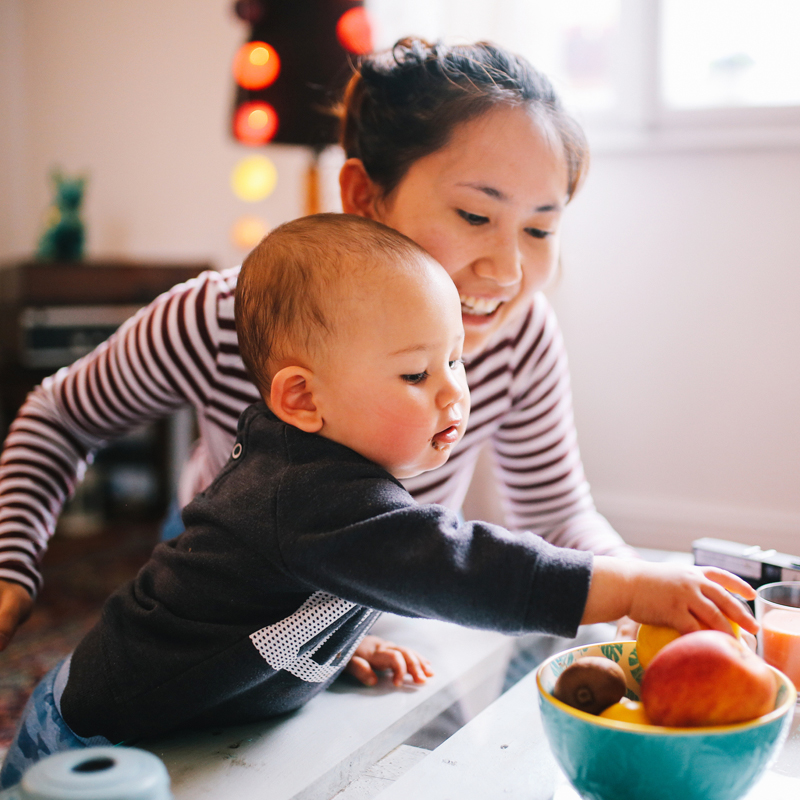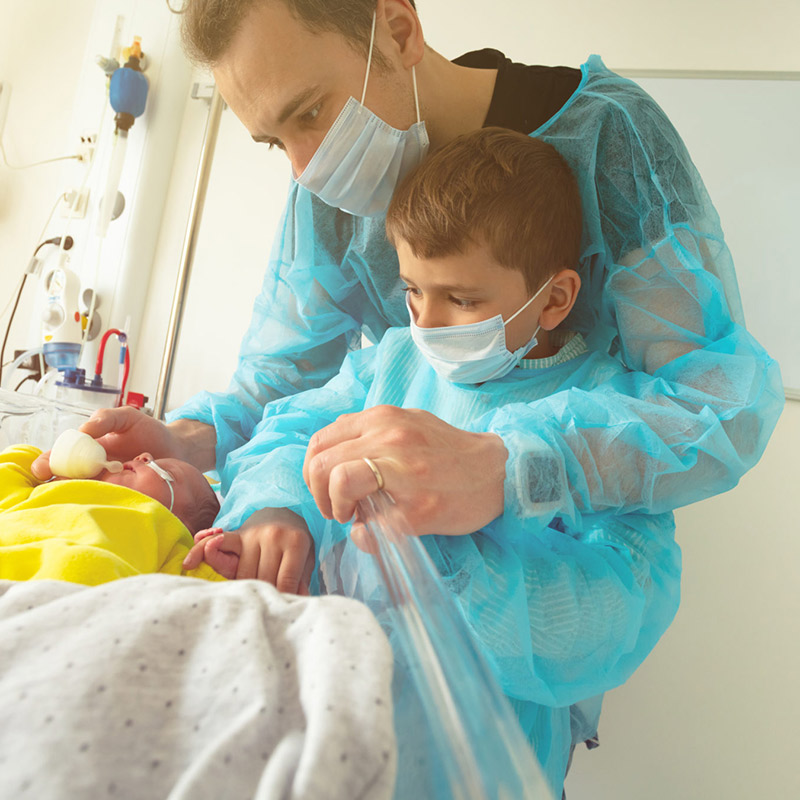4 Ways to Cope with Postpartum Depression & Anxiety During the Coronavirus Pandemic

June 10, 2020
Whether you are a new mom or adding to your family, there are many challenges. Postpartum depression (PPD) and postpartum anxiety (PPA) can happen to anyone. We face a unique time during this global pandemic. Uncertainty and fear are normal reactions, but they are worsened by the pandemic.
“You are not alone,” says Marilyn Loh Collado, M.D., OB/GYN and chairperson of the department of OB/GYN at Riverview Medical Center. “The stay-at-home orders, health concerns and COVID-19 are mentally and emotionally stressful. On top of that, you are also undergoing physical and hormonal changes.”
Under normal circumstances, family and friends would be able to come over and assist the new parents. But due to the COVID-19 pandemic, now this can’t happen unless the helper self-quarantines before and after baby’s arrival. Families are adjusting to their new arrival while also perhaps having a parent work from home and handle additional childcare needs. These demands can be even harder for single mothers.
“Social support is vital. Typically, we tell postpartum women to get out of the house and connect to other people, like joining a ‘new mothers’ group,” says Dr. Loh Collado. “Now, with social distancing, this is a bit harder, but there are still great options to help improve your mental health.”
Here are four ways to help cope:
Therapy
Therapists and psychiatrists are still providing treatment, and many are now using telemedicine to meet with their patients. This allows you to receive care from the safety and comfort of your home.
“Talking through difficult issues and feelings aren’t always easy to do with family or friends,” says Lauren Kaczka-Weiss, D.O., a psychiatrist at Hackensack Meridian Health. “Therapy provides you with an outlet to discuss things you might not usually talk about, work through problems, learn techniques to help cope, and find a way to start feeling like yourself again.”
Digitally connect
There are plenty of tools available for you to video chat with family and friends. Phone calls are good as well, but video chats will help strengthen your connection with others from the safety of your home using your phone, tablet or computer.
Online groups help you connect with other mothers going through the same issues, especially during this time of social distancing. Ask friends or your doctor about what group they recommend.
Medication
Medication, typically antidepressants, may be prescribed to help manage your PPD or PPA in conjunction with other treatments. These may take a couple weeks to become fully effective. Antidepressants are typically safe to use while breastfeeding, but your physician will review your individual case prior to prescribing any medications. If you don’t find relief after starting a medication plan, talk to your doctor as they may change your dosage or type of medication to find what works best for you.
Lifestyle Changes
You’ve already made changes during your pregnancy, but there are other important lifestyle changes you should consider as a mom. These tips may be especially helpful if you are suffering from depression or anxiety.
- Make healthy lifestyle choices. Eat well, get adequate rest and include physical activity, such as a walk with your baby, in your daily routine. Exercise (once you are cleared by your physician to do so) releases endorphins which combat stress and can boost your mood.
- Set realistic expectations. You are recovering and having to mother at the same time. Don't pressure yourself to do everything. Do what you can and leave the rest for another time.
- Make time for yourself. Remember, taking care of your baby includes taking care of yourself. Do something you enjoy, such as crafting, a puzzle, or watching a favorite movie.
- Meditate. Learn to reduce stress and its added affects on PPD and PPA through meditation. There are lots of great programs available online. Hackensack Meridian Health offers several online, live sessions to help you manage stress and practice mindful meditation and self-care.
Friends and family should still try to support a new mom as much as possible. A great way for them to help is by having groceries delivered or dropping off diapers or a few meals.
Worried someone you love may be suffering from PPD or PPA? Watch for these signs:
- “Baby Blues” don’t improve after the first two weeks postpartum
- Frequent crying or tearfulness
- She no longer has interest in things she used to enjoy
- She is either too tired or just doesn’t care to make decisions
- She isn’t engaging with the baby
- Her sleep patterns have changed, including frequent waking or having trouble sleeping, and not just due to having a newborn
- Constant or near-constant worrying
- Feelings of dread about what might happen
- Racing thoughts
- She thinks about harming herself or the baby
Postpartum Anxiety can also cause physical symptoms including:
- Fatigue
- Heart palpitations
- Hyperventilation
- Sweating
- Nausea or vomiting
- Shakiness or trembling
Be sure to talk with your loved one and their physician if you think they may be suffering from PPD or PPA.
Next Steps & Resources:
- Meet our clinical contributor: Marilyn Loh Collado, M.D.
- To make an appointment with Dr. Loh Collado or another provider, call 800-822-8905 or visit our website
- Visit our Urgent Care with Behavioral Health, including On-Demand Telemedicine
- Postpartum Support International
The material provided through HealthU is intended to be used as general information only and should not replace the advice of your physician. Always consult your physician for individual care.
Find a doctor near me
What New Parents Need to Know About COVID-19

COVID-19: New parent guide to safety and well-baby care. Learn how to keep your family healthy and find support. Find a pediatrician.
4 Ways You Can Help NICU Parents

Support NICU parents. Learn 4 ways to help from Joseph M. Sanzari Children's Hospital doctors. Offer practical and emotional support.
Find a doctor near me

When Your Child’s Grades Drop
Child's grades dropping? Learn how Drs. Miller and Biller offer support and guidance to help your child. Call 800-822-8905.
How Do I Speak With My Child About Race?
Learn how to talk with your child about race. Doctors Wells and Kaczka-Weiss offer guidance for parents. Get expert advice and resources today. Call 800-822-8905.
Breastfeeding Advice During the COVID-19 Pandemic
Breastfeeding advice during COVID-19. Learn how to protect yourself and baby. Get expert tips and resources for safe breastfeeding practices.
Unsure About Vaccines? 5 ‘Scary’ Myths Unraveled
Debunk vaccine myths & protect your child. Learn facts from experts, dispel fears, and make informed decisions for your family's health. Call 732-455-8559 or 551-996-9160.
